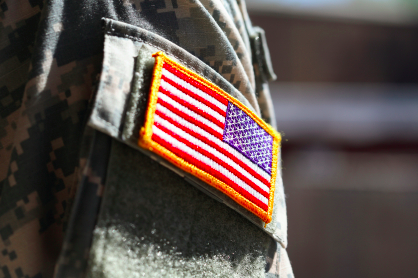I supported the Iraq War from the start. I supported it so much that as the anti-war movement built momentum at home and around the world — and as key members of the U.N. Security Council failed to support a new resolution authorizing the invasion — I felt anxious that President Bush would blink. Yes, I believed that Saddam Hussein had a stockpile of WMDs, but I also believed there were ample additional (and sufficient) reasons to invade: He was violating the Gulf War cease-fire accords, he was shooting at our pilots on a daily basis, he was a prime financial supporter of the Palestinian suicide bombing offensive in the Second Intifada, and he tried to kill a former American president. All those events occurred after he had previously launched two offensive wars (against Iran and Kuwait) and gassed his own people. Both the Authorization for the Use of Military Force in Iraq (2002) and the Iraq Liberation Act (1998) detail Saddam’s many sins, yet even these Acts of Congress fail to provide the full list.
In other words, there were legal, moral, and strategic grounds for war even absent weapons of mass destruction.
Yet it was here that we made a terrible rhetorical mistake. By grounding the public case for war so solidly in the existence of large and dangerous stockpiles of existing weapons — rather than making the more complete case for war — when those stockpiles didn’t exist (much to the surprise even of many Iraqi generals) to a great many Americans the reason to fight simply disappeared.
Then, we made a second mistake — adopting the hopeless idealism and soaring rhetoric of the “freedom agenda.” Even if there were no stockpiles of chemical weapons, the administration tried to empower the longing for freedom that allegedly “resides in every human heart.” Turns out, however, that not all human hearts are the same, and for many a longing for their own political freedom does not translate into a longing for their neighbor’s political freedom. To be clear, Iraqis are far, far better off than they were under Saddam, but the soaring rhetoric made Americans believe that “victory” looked something like Nebraska-on-the-Euphrates, with ancient enemies living in democratic harmony. That was never realistic.
But rhetoric shouldn’t obscure the reality of our hard-fought victory. We removed a deadly regime — a genocidal declared enemy of the United States located in the strategic center of the Middle East — then defeated a follow-on insurgency that would have transformed Iraq into the epicenter of Mideast jihadism and terror. Yes, we made military and political mistakes that helped create and sustain the insurgency, but we corrected ourselves, stayed the course, and ultimately decimated al-Qaeda in Iraq. We defeated our enemies and left behind a far more just regime that remains an ally and has committed none of the sins of Saddam. Of course there are grave concerns about the way forward, but under no probable scenario do we return to the strategically intolerable status quo of 2002 or to the jihadist madness of 2005–2006.
As some readers may know, in late 2005 — as Iraq spiraled out of control and our resolve at home wavered — my conscience wouldn’t allow me to sit on the sidelines. The “chickenhawk” label is a bad-faith slur, but as for me, well I simply couldn’t continue supporting a war I wasn’t willing to fight in myself. So I joined the reserves (thank you, age waivers and lax recruiting standards!), volunteered to go to Iraq, and spent a year deployed with the Third Armored Cavalry Regiment in Diyala Province at the height of the surge.
I’ll never forget my nighttime helicopter flight into Forward Operating Base Caldwell, my home for almost eleven months. Looking over the door gunner’s shoulder, I saw fires in the distance and knew that everything was so very real — and that I might never come home. When we landed, I’m afraid the fear and concern showed in my face. One of our troop commanders put his arm around my shoulders and said, “If you live through this, it will be the most important year of your life.”
While I made it home, many of my brothers did not. I think of them every day — especially today. And, yes, it was the most important year of my life. I saw true courage, served with men who are my heroes, and I know their sacrifices — as some gave their lives, some gave their bodies, some gave their families, and all gave a year of danger, fear, and uncertainty — were in service of a just, righteous, and ultimately victorious cause.
This article first appeared here on National Review, where it’s generated a lot of conversation.










